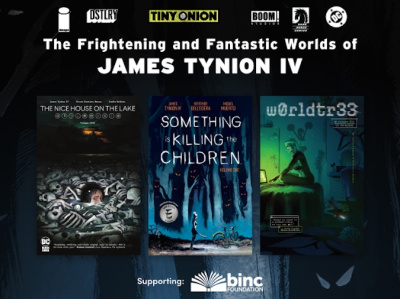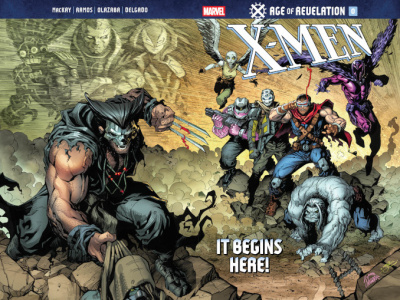Stephen Saffel, an editor for Titan Books, has been following the recent slate of articles regarding libraries pulling some graphic novels (see "Libraries Ban 'Dragon Ball'", "More on Library Employees Fired over 'LoEG'" and "'Stuck in the Middle' Pulled from Middle Schools") and would like to comments on the subject of censorship:
There's been a lot of discussion recently, relating to graphic novels being pulled from libraries, and certainly it's an issue that should concern publishers and readers alike. Never before have we seen such support for the comics medium, in libraries and in schools. As a result, never before has there been this much scrutiny of the material, and the result isn't always encouraging.
Censorship is rearing its ugly head, and quality material is coming under fire, at times from people who either don't understand it, or don't care to understand. The coverage of these incidents--wherein books are pulled and protests are lodged--has made it seem as if a witch hunt is massing. For those of us who love the medium, any attack may cause us to bristle, and to portray the detractors as pitchfork-and-torch villagers preparing to storm the castle.
We need to fight the closed-minded, knee-jerk reactions whenever and wherever we can. Otherwise, our audiences will become the ultimate victims, having had the fruits of our labors yanked away from them without
forethought or reason. However, while waging this battle, we also need to learn from our conflicts, and come to understand the circumstances under which they are waged. We need to see the bigger picture.
Books have been pulled and re-categorized in schools and libraries for decades. Titles like To Kill a Mockingbird are synonymous with the emotionally-charged conflict between propriety and free speech, and many titles wear the "banned book" badge with pride. So how do these recent incidents--the ones involving graphic novels--compare with the way other books are handled on a daily basis? Are graphic novels really under fire more than other material? Is the public ire really being focused narrowly on our medium, or is our medium just finding itself drawn into a process that's been occurring for years?
Are there ways to work within the system, so that we don't have to wage war? What can we learn from those who fought before us?
We need to continue to be vigilant, to do our best to defend graphic novels that unfairly come under fire. But we also need to understand the process better, so we can learn to react appropriately. Just as comics fans have
come out of the basement and into the sunlight, the medium has emerged into the broader cultural landscape. We need to assess the lay of the land--all of it--so that when we do react, it leads to the most positive results.
The opinions expressed in this article are solely those of the writer, and do not necessarily reflect the views of the editorial staff of ICv2.com.
'Rearing Its Ugly Head'
Posted by ICv2 on November 15, 2009 @ 11:00 pm CT
MORE TALK BACK
'How Would You Deal with This?'
April 15, 2024
Ralph DiBernardo of Jetpack Comics shares his frustrations on street release dates being ignored and the lack of consequences.
'We Need More Long-Term Thinking.'
November 30, 2023
In this Talk Back, Allen Berrebbi, Director of Business Development for Big Bang Comics, comments on the current state of the Direct Market and offers a couple of suggestions to help save it.
MORE COMICS
From Tiny Onion, Dynamite, Image, IDW
July 18, 2025
There are four Humble Bundle deals running right now, from Tiny Onion, Dynamite, Image, and IDW.
From Marvel Comics
July 18, 2025
Age of Revelation, a new status quo taking place 10 years into the future and arising out of current developments in the X-Men titles, begins in October.







